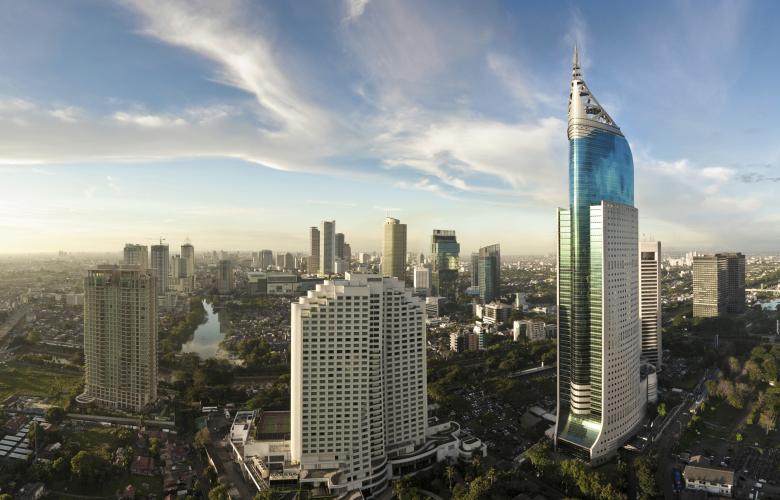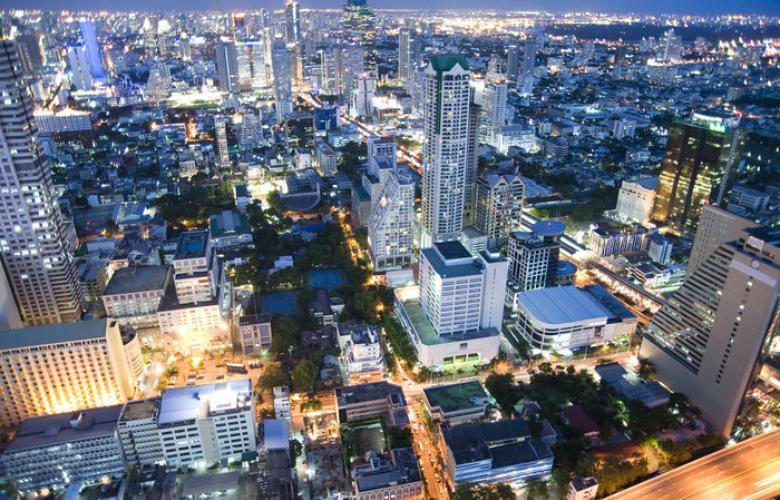Why should we expect further growth in the Asian real estate market?
Contact
Why should we expect further growth in the Asian real estate market?
Santos Knight Frank, CBRE, JLL and Colliers International agree the Asian real estate market is showing great promise for further growth.
Authoritative reports from international real estate agencies show stronger economic growth can be expected in the Asian real estate market in 2017 than was predicted six to nine months ago. The office sector has been particularly strong but retail, industrial, hotel and residential sectors have also been robust in Singapore, Indonesia, China, Myanmar, the Philippines, Thailand and Vietnam.
Singapore
Colliers reported that the Singapore market is looking buoyant with continued interest from both sellers and buyers for residential land. A new record has been set with four parcels of residential land sold to developers for SGD1.5 billion (USD1.08 billion) in just one month.
Confidence in the market was also demonstrated by the huge number of bidders and aggressive pricing, setting new highs in Singapore with a record bid of SGD$1 billion from China developers Logan Property and Nanshan Group for the Stirling Road land parcel for homes in Queenstown which translates to a land price of about $1,050 psf.
JLL agrees that confidence has improved with five collective sales conducted in Q2 plus the successful tenders of government land. Click here to view the JLL Capital Markets in Focus Report
Indonesia
With a record supply of new office space and strata title apartments for sale Colliers report that foreign investment to Jakarta remained high in Q2. Residential developers are targeting the middle-market apartments segment, shifting from a previous focus on upscale & luxury segments. Before 2013, developers built projects with little-to-no bank financing as they were able to pre-sell apartments, but due to the slower current rate of absorption many developers now seek joint venture partners or new forms of financing.
At the start of Q2 2017, a total of 59,017 apartment units were under construction, of which 21,167 units are expected to reach completion before the end of 2017, followed by 28,303 and 9,547 units in 2018 and 2019 respectively according to Colliers.
Click here to read 7 reasons why the Jakarta property market is almost on the upswing written by Trent Muffett from Savills Indonesia.
It may not always be about Jakarta though.
In a July release from CBRE from Jonathan Hills (Asia Director Head of Research) and Desmond Sim (Head of Research Singapore and Southeast Asia) a warning was put out to investors and occupiers to closely monitor government plans to relocate the capital city from Jakarta. The report also discusses reasons put forward for the move and locations under consideration for the new capital.
SCHWARTZWILLIAMS has also reported that Singapore’s population growth may drive demand recovery in residential rents and home prices.
Click here to see where the foreign investment hot spots are in Singapore.
China
The Beijing market is seeing domestic investors being more active than their foreign counterparts. Most new transactions are in the decentralised markets such as rising satellite cities Wangjing and Tongzhou. JLL says they expect more subdued high-end sales but developers are set to remain firm with pricing. Savills China reported in their Residential Briefing that the moderate leasing demand experienced early in 2017 saw both serviced apartment and Grade A apartment rents register positive growth.
Growth opportunities in Chengdu are limited but the residential market remains strong while Business Parks in Chengdu and hi-tech zones in Xi’an remain the main areas worth investing in, with stable tenancy and lower capital value.
Hong Kong continues to have a buoyant residential market while the secondary market has been mostly quiet. Decentralised retail, industrial and hotel properties have increased in transaction volume.
Click here to view the Colliers Asia Market Snapshot Report
JLL sees the new mass residential launches in Hong Kong continuing to be well-received despite the latest property cooling measures.
Myanmar
Colliers' Asia Market Snapshot Report's that Myanmar’s residential market and the condominium sector suffer from an ambiguous law that permits foreigners to purchase condo units, which has resulted in a slowdown in the housing market. This law allows overseas buyers to own 40 percent of a residential project. The requirements for a development to qualify as a condominium, and parking requirements are unclear, making it difficult to reduce the size and affordability of units. Yangon’s condominium prices tend to be higher than other countries in South East Asia, making them a very risky investment in the short term.
Colliers Myanmar have reported that demand will be strong for master-planned gated residential communities going forward, according to Joshua De Las Alas, Senior Analyst at Colliers International. Mr. De Las Alas has defined master-planned gated residential communities as
housing estates featuring special characteristics such as controlled security, well-defined lanes and pedestrian walkways, as well as shared amenities and facilities such as a clubhouse. Click here to view the Colliers July 2017 Yangon Gated Residential Report
Philippines
JLL's Capital Markets in Focus Report goes on to show that the next six years are considered by the government to be the ‘golden age of infrastructure development’. The new railway project, to be completed by 2021, connects Metro Manila to Bulacan and Pampanga and it will help to unlock suburban real estate potential. Continuous growth is shown in pre-sales condominiums for mid-income buyers. Vista City and Arca South, plus luxury projects such as Proscenium and Park Central are more than 80% sold to date, and capital values continue to rise.
Santos Knight Frank Philippines in their recent Metro Manila Market Update states that the growing investor base and increasing end-user demand are essentially boons to real estate market players, either on the development or acquisition side. On the development side, the solidified confidence of investors in the country has led to a complete rebound in Licenses to Sell (LTS) issued by the Housing and Land Use Regulatory Board (HLURB). Issued LTS surged by 47% in 2016 year-on-year as the government aimed to simplify business processes and requirements, and entice more investments in housing and real estate projects across the country.
Thailand
Colliers reports that with tougher bank lending policies and relatively high household debt, there continues to be pressure on the general market, with slowing growth rates in prime locations in Bangkok. But, there is strong demand for very high-end condominiums in central locations. The government is boosting residential development confidence by improving mass transit links such as the Yellow, Orange, and Pink lines in Bangkok. Residential developers are buying or leasing prime land for new mid-to high-end projects and acquiring new assets through mergers and acquisitions.
Vietnam
CBRE reported that sales momentum in Hanoi for Q2 2017 was strong again with 9,522 units sold, improvements by 40% q-o-q and 59% y-o-y. Newly launched projects recorded 5,765 units sold, accounting for 60% of total sold units. Newly launched projects reported an average of 54% total sold units within one quarter.
According to JLL confidence in the Vietnamese real estate market has been boosted by entrepreneurial local developers, and maturity in occupiers’ expectations. To help propel this, the government has pledged to speed up the approval process of new investment projects. But there is currently a mismatch between owners’ high asking prices and yields on low income-producing assets.
Sources: Santos Knight Frank, CBRE, JLL, Colliers International
Similar to this:
Get to know Rick Santos, Chairman and CEO – Santos Knight Frank
Urban regeneration - It's still about creating places where people want to be









